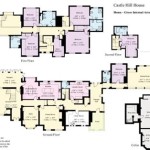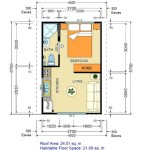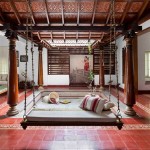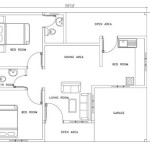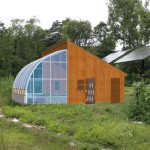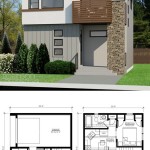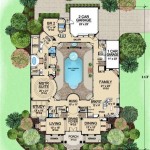Floor Plans for Small Guest Houses in Frankfurt, Germany
Frankfurt, Germany, a major financial hub and cultural center, faces continuous demand for temporary accommodations. Small guest houses offer a cost-effective and often more personalized alternative to larger hotels. Optimizing the floor plan is crucial for creating a functional, comfortable, and appealing guest experience within a limited footprint. Careful consideration must be given to maximizing space utilization, ensuring privacy, and incorporating essential amenities while adhering to local building codes and regulations.
When designing floor plans for small guest houses in Frankfurt, architects and designers must consider several key factors. These include the target demographic, the intended duration of stays, and the required level of functionality. A guest house catering primarily to business travelers will have different space requirements compared to one aimed at tourists or longer-term residents. Similarly, the inclusion of amenities like kitchenettes or dedicated workspaces will significantly impact the floor plan layout.
German building codes, known for their strictness and emphasis on energy efficiency, must also be carefully considered. These codes dictate minimum room sizes, ventilation requirements, fire safety protocols, and accessibility standards. Compliance with these regulations is not only legally mandated but also essential for ensuring the safety and well-being of guests.
Maximizing Space Utilization in Compact Floor Plans
Space efficiency is paramount when designing small guest houses. Every square meter must be utilized effectively to create a comfortable and functional living environment. This often necessitates innovative design solutions and the strategic use of multi-functional furniture.
One common strategy is to incorporate open-plan layouts that combine the living and sleeping areas. This creates a greater sense of spaciousness and allows for more flexibility in furniture arrangement. However, careful consideration must be given to creating visual separation between these zones to maintain a sense of privacy and comfort. This can be achieved through the use of screens, shelving units, or changes in flooring.
Another effective technique is to utilize vertical space. High ceilings, if permissible under building codes, can create a feeling of openness and provide opportunities for storage solutions. Loft beds, for example, can free up valuable floor space for a living area or workstation. Similarly, tall, narrow storage units can maximize storage capacity without occupying excessive floor area.
Multi-functional furniture is essential for maximizing space utilization. Sofa beds can easily convert a living area into a sleeping space, while folding tables and chairs can provide a dining or workspace when needed and be conveniently stored away when not in use. Wall-mounted desks and shelves can also save valuable floor space and create a more streamlined look.
Built-in storage solutions are another effective way to maximize space. Wardrobes, drawers, and shelves can be integrated into the walls or under the bed, providing ample storage without encroaching on the living area. This is particularly useful in small guest houses where closet space may be limited.
Lighting also plays a crucial role in creating a sense of spaciousness. Natural light should be maximized through the use of large windows and skylights. Strategic placement of mirrors can also reflect light and create the illusion of a larger space. In addition to general lighting, task lighting should be provided in specific areas, such as the desk or bedside table.
Ensuring Privacy and Comfort for Guests
While space efficiency is important, it is equally crucial to ensure privacy and comfort for guests. A well-designed floor plan should provide a sense of personal space and allow guests to relax and unwind after a long day.
Private bathrooms are essential for any guest house, regardless of size. The bathroom should be well-ventilated and include a shower or bathtub, a toilet, and a sink. Compact bathroom fixtures and layouts can help maximize space in small bathrooms. 壁挂式的马桶和水槽可以释放地面空间,而淋浴房则比浴缸更省空间。
Acoustic insulation is also crucial for ensuring privacy and comfort. Walls, floors, and ceilings should be adequately insulated to minimize noise transmission between units. This is particularly important in densely populated urban areas like Frankfurt, where noise pollution can be a significant issue. Double-glazed windows can also help reduce noise intrusion from outside.
Window coverings, such as blinds or curtains, are essential for providing privacy and controlling the amount of light entering the room. Blackout curtains can be particularly beneficial for guests who are sensitive to light or who need to sleep during the day.
The placement of furniture can also contribute to privacy and comfort. For example, placing a sofa or armchair with its back to the door can create a sense of separation and privacy within the living area. Similarly, a room divider or screen can be used to create a more private sleeping area.
The overall aesthetic of the guest house should also be considered. A clean, minimalist design can create a sense of calmness and relaxation, while a more cluttered or overly decorated space can feel overwhelming. Neutral colors, simple furnishings, and natural materials can help create a welcoming and comfortable atmosphere.
Adhering to Building Codes and Accessibility Standards in Frankfurt
Designing small guest houses in Frankfurt requires strict adherence to local building codes and accessibility standards. These regulations are designed to ensure the safety and well-being of occupants and to promote accessibility for people with disabilities.
German building codes, known as the *Bauordnung*, cover a wide range of aspects, including minimum room sizes, ventilation requirements, fire safety protocols, and energy efficiency standards. Minimum room sizes vary depending on the intended use of the room. For example, bedrooms must typically have a minimum floor area of 10 square meters per person. Ventilation requirements dictate the minimum amount of fresh air that must be supplied to each room. This can be achieved through natural ventilation, such as windows, or through mechanical ventilation systems.
Fire safety protocols are particularly strict in Germany. Guest houses must be equipped with smoke detectors, fire extinguishers, and emergency exit routes. Fire-resistant materials must be used in the construction of walls, floors, and ceilings. Emergency lighting must also be provided to illuminate exit routes in the event of a power outage.
Energy efficiency standards are also rigorously enforced in Germany. Guest houses must meet certain minimum energy performance requirements, which are designed to reduce energy consumption and greenhouse gas emissions. This can be achieved through the use of energy-efficient windows, insulation, and heating systems.
Accessibility standards are designed to ensure that guest houses are accessible to people with disabilities. This includes providing ramps or elevators for wheelchair access, accessible bathrooms with grab bars and roll-in showers, and visual and audible alarms for people with hearing or visual impairments. The *DIN 18040* standard specifies detailed requirements for accessible building design in Germany.
Compliance with these building codes and accessibility standards is not only legally mandated but also essential for ensuring the safety and well-being of guests. Failure to comply can result in fines, delays in construction, and even legal action. Therefore, it is crucial to consult with experienced architects and engineers who are familiar with local regulations and can ensure that the design meets all applicable requirements.
In summary, designing floor plans for small guest houses in Frankfurt requires a careful balance between maximizing space utilization, ensuring privacy and comfort, and adhering to local building codes and accessibility standards. By incorporating innovative design solutions, utilizing multi-functional furniture, and consulting with experienced professionals, it is possible to create functional, comfortable, and appealing guest accommodations within a limited footprint.

H Rewards

The Skinny Minihouse Is A Study In Low Impact Urban Housing Germany

Lindenberg Rückertstrasse The

Hilton Frankfurt Airport Hotel At T1

Lindenberg Rückertstrasse The

Jw Marriott Hotel Frankfurt Updated S 2025

The 10 Best Frankfurt Hotels With Kitchenette 2025 S Tripadvisor
Gerbermuehle A Design Hotel First Class Frankfurt Germany Hotels Business Travel In News

Hotel Villa Floina Frankfurt Germany Discounts Hotels Com

Where To Stay In Frankfurt Best Areas And Budget Hotels

